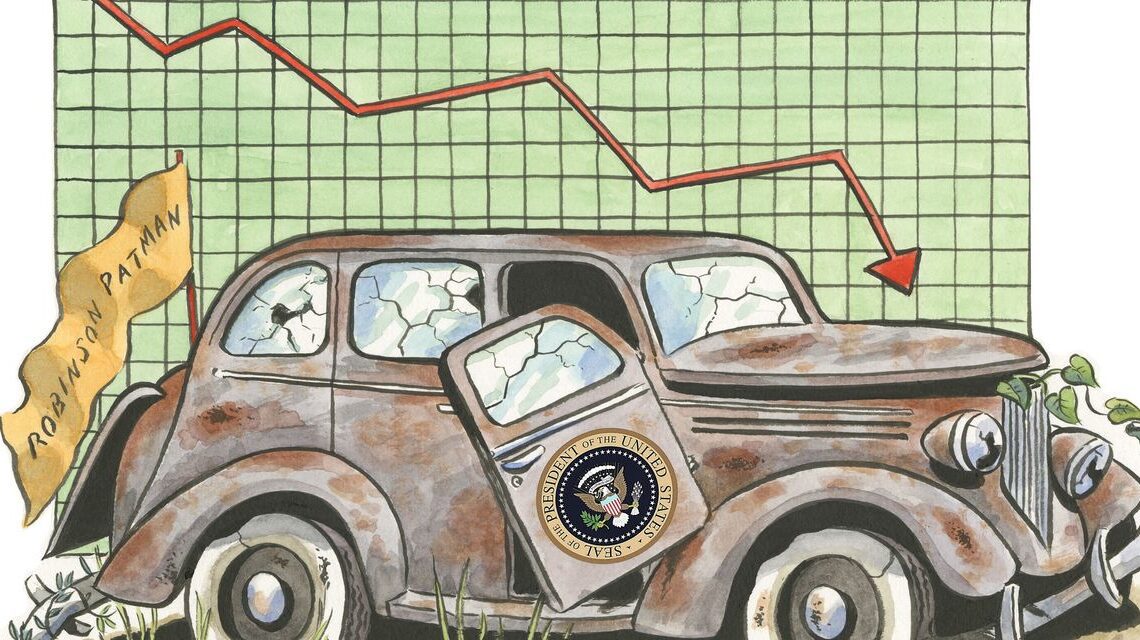President Biden rejects the economics-driven antitrust policies of the past 40 years. Flanked by his White House competition adviser and his new Federal Trade Commission chair,
Lina Khan,
in July 2021, he asserted that the “experiment failed” and promised to return to earlier antitrust “traditions.” In a new report for the American Enterprise Institute, I show that those traditions were abandoned for a reason: They harmed consumers.
Consider the Robinson-Patman Act of 1936, which reflected a theme of Mr. Biden’s enforcers: Big is bad. The “bigness” under attack was the new chain retailers, most notably the Great Atlantic & Pacific Tea Co. A&P, which closed the last of its stores in 2015, was America’s largest retailer from the 1920s until the mid-1960s. It and its imitators used vertical integration, economies of scale and greater reliance on data to provide attractive products at lower prices, especially benefiting the less wealthy. Traditional retailers and the middlemen who supplied them suffered, and became huge supporters of Robinson-Patman.
Sen.
Joseph T. Robinson
(D., Texas) and Rep.
Wright Patman
(D., Ark.) failed to enact their original draft inspired by industry-written, government-endorsed codes designed to raise prices. So they resorted to language that is vague, frequently self-contradictory, and subject to varying interpretations. For decades, the FTC interpreted the statute aggressively, reflecting antipathy toward chain stores and the growing number of large suppliers. The prices those suppliers and brokers charged became a major FTC focus, and Robinson-Patman was the FTC’s major antitrust tool through the 1960s.
The enforcement of Robinson-Patman raised costs and otherwise hurt the low-priced chains that were its intended targets, harming consumers. After decades of withering criticism, first from the academy and the practicing bar, courts rejected some of the FTC’s positions, a trend that accelerated as attacks grew, including from a minority within the FTC itself in the 1960s. A 1969 American Bar Association panel excoriated FTC enforcement. The commission eased off on the statute in the 1970s and has virtually abandoned it since.
The Justice Department issued a devastating report in 1977 detailing the many follies of FTC enforcement and the significant costs…
Click Here to Read the Full Original Article at RSSOpinion…

